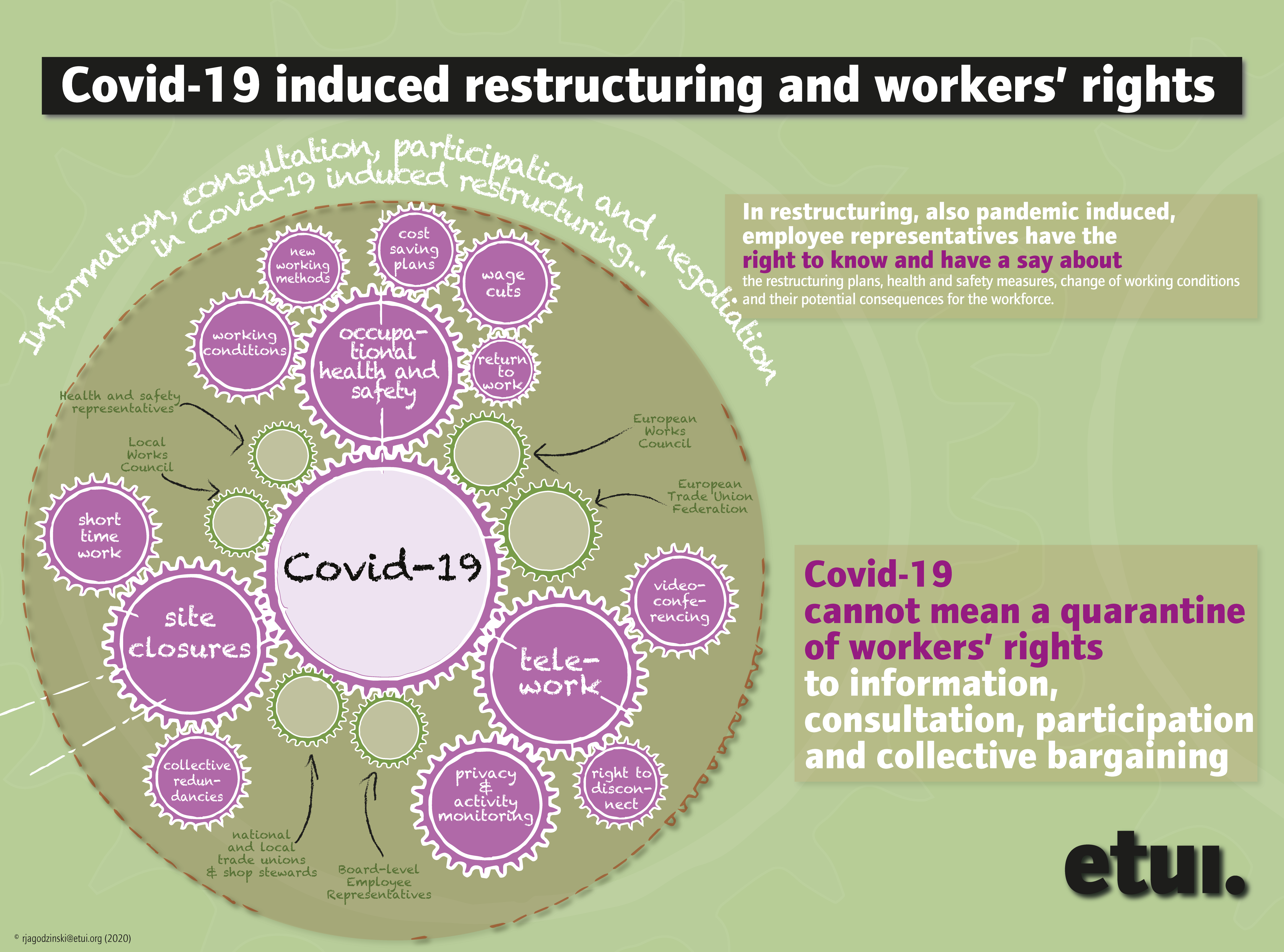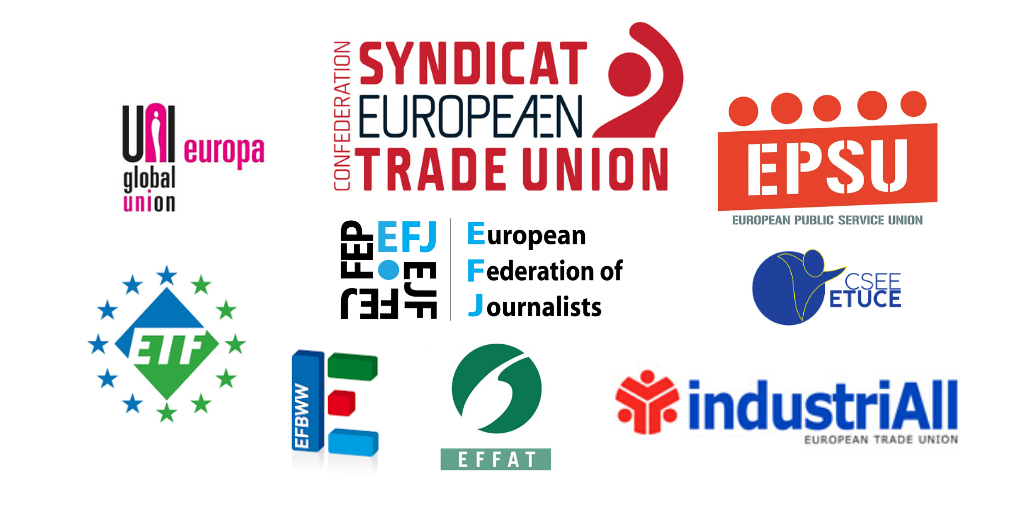Theoretically there are 4 main forms of restructuring. But in most real cases, one will find a combination of one or more. Restructurings include:
- internal restructuring
- bankruptcy and closure
- mergers & acquisition
- offshoring & relocation of production and services.

After the COVID-19 health crisis hit the world, European workers are now facing the massive social and economic consequences brought by the pandemic. The crisis has above all uncovered the structural flaws and weaknesses in the economy and society. This includes
- lack of workers’ involvement,
- attacks to workers’ and trade union rights,
- attacks to wage setting and collective bargaining systems,
- unsustainable corporate governance models based on short-term decisions and shareholders’ interest.
The impact of the COVID-19 outbreak on our lives, societies and economies is unprecedented. Trade unions from all over Europe act united in defending workers’ health and safety and speak with one voice: the COVID19 crisis must not put jobs and incomes in jeopardy!
Worker involvement through information, consultation and participation in company decision-making is more important than ever to anticipate and deal with the social and economic consequences which may arise from this crisis.

COVID-19 watch – ETUC briefing notes
Workers are at the forefront of the battle against coronavirus. Millions of them are experiencing many difficulties in their lives and in making a living caused by measures to tackle the pandemic.
As a support to those workers, the ETUC has launched the COVID-19 watch – ETUC briefing notes. They provide critical information on the impacts of COVID-19 on labour markets, workers and citizens across Europe. New agreements and measures are being announced daily. The current briefings will be updated periodically, and new ones produced on other topics.
Find here the ETUC briefing notes on workers’ information, consultation and participation.

Joint recommendations
The ETUC and the European trade union federations have issued very practical joint recommendations to worker representatives in European Works Councils (EWC) and in companies under the European Company statute (Societas Europaea - SE). These guidelines aim at advising members in EWC/SE-WC on how to deal with the COVID-19 crisis in their company. In addition, they serve as a tool to put pressure on management to protect workers’ health & income and to safeguard jobs.

Companies and managements too often don’t comply with their legal obligations to inform and consult workers’ representatives before taking crucial decisions. Through the Democracy at Work strategy, the ETUC & the European Trade Union Federations are pushing European decision-makers to stand up for workers in restructuring processes.
In a joint letter to Commissioner Schmit (Jobs & Social Rights), we call on the European and national institutions to deliver concrete and rapid actions to guarantee the effective enforcement of workers’ rights to be informed, consulted and to participate in decision-making before any decision is adopted.
In 2003, the ESP negotiated the Orientations for reference in managing change and its social consequences. It found some translation in further joint seminars on corporate restructuring organised in the frame of the European social partners work programme until 2010.
Corporate & sectoral restructuring is a continuous feature of economic life. They result from technological progress, digitalisation and innovation, as well as societal and political changes. The EU has undergone phases of accelerated restructuring in specific sectors (e.g. steel and textiles) or national economies (e.g. the transformation process in Central and Eastern Europe) in the past. However, change since 2008 is different. The crisis ended a phase of net job creation and resulted in a sharp and long-lasting rise in unemployment, especially in countries on the margins of the EU.
The ETUC is anticipating change. This is the reason why it demands a more integrated regulatory framework to ensure restructuring takes place in a coherent, fair and responsible way in Europe. Trade unions want to play a proactive role in anticipating, negotiating and managing restructuring.
